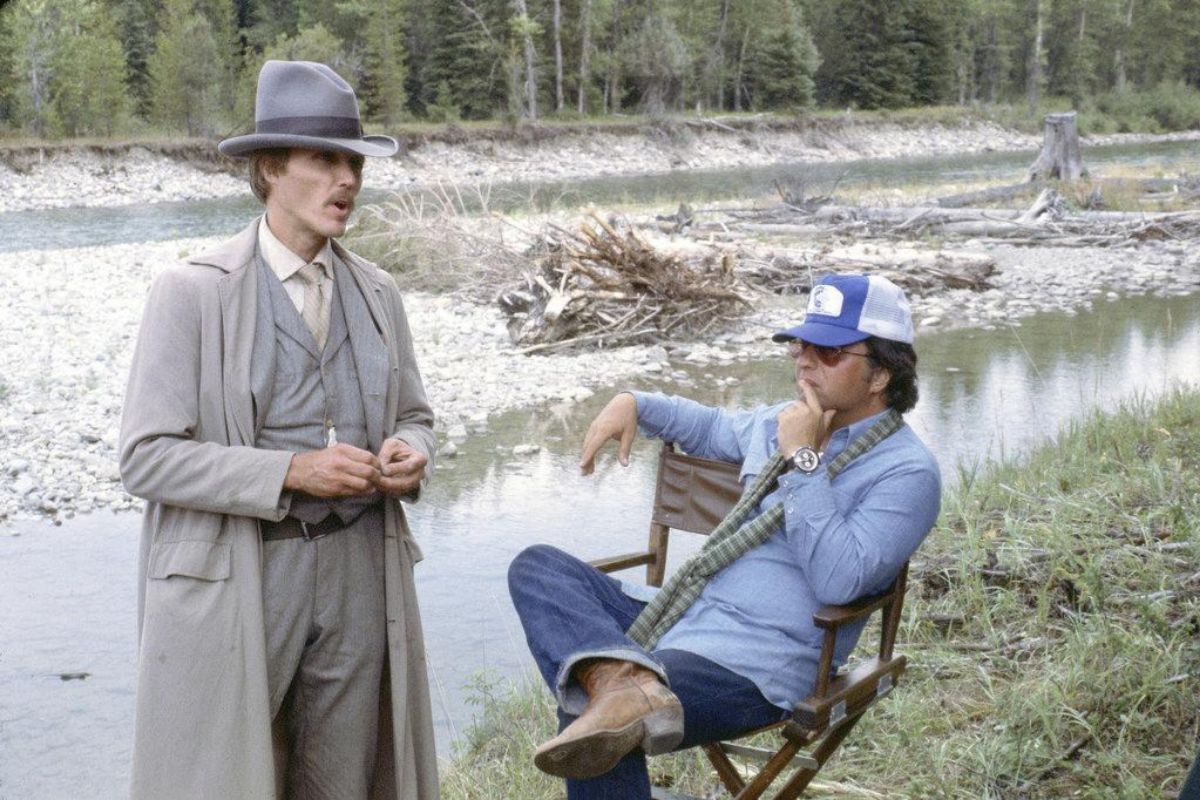Interview: 'I film what no one has ever seen before'
Obituary: Film director Michael Cimino, the man who was cold, dies
In late 1980, on Tuesday, November 18,
Heaven's Gate
,
Michael Cimino's
third film
, was released in a theater on Third Avenue in New York
,
after the overwhelming success of
The Hunter
(1978).
Headed by the love triangle formed by
Kris Kristofferson, Isabelle Huppert and Christopher Walken
, it was a
western
that demystified the conquest of the West as never before by showing the misery of the emigrants through a dark historical episode, and was called to be the culmination of the gender.
But very few people attended the party that followed at the Four Seasons.
The tragedy, as they say, was chewed in the air.
Throughout the three and a half hours of projection, the spectators, uncomfortable, had shifted in their seats.
And the critics, then so influential, finished the film the next day
.
Feathers as famous as those of
Roger Ebert and Pauline Kael
were cruel to
Heaven's Gate
, although it was
Vincent Canby,
in the
New York Times,
who signed his most memorable epitaph:
"It is a disaster so great that we could suppose that Mr. Cimino sold his soul to the devil
with
The Hunter
and now the devil has returned to collect ".
The shock waves of that fiasco continue to this day.
The resounding failure of this colossal and lyrical western - it cost 44 million dollars, and did not raise more than three and a half in the United States -
not only took away the career of Cimino, who barely directed three more films before passing away in 2016, and sank United Artists - the same studio that had produced
Manhattan, Apocalypse Now or Wild Bull
-, but also ended the hegemony of the so-called
New Hollywood,
that is to say that prodigious decade in which
Coppola or Scorsese
imposed their law with films as personal as massive.
The consequences were radical: the producers took back the reins, and bet on the youngest and most manipulable public, filling the screens with superheroes, dinosaurs, imperial cruisers and anabolic warriors who returned to Vietnam to take revenge.
Christopher Walken and Michael Cimino at one point in the filming of 'Heaven's Gate'.
It is not that, as a result of the disaster of
Heaven's Gate
, auteur cinema disappeared from the American map, but that access to the largest budgets was banned, and it was evacuated to the margins of independent cinema, a place where the public does not come en masse, since advertising no longer points the way.
The end of the story is known,
Hollywood continued to bet on the beardless public, and when that public grew they did not see much advertised that might interest them.
He needed political incorrectness, psychological depth, witty dialogue.
A bit of transgression in the form of sex, drugs, and bad language.
It seemed to him that he could only find it on cable television networks.
In any case, it was easier.
You just had to hold on to the remote control.
And so we continue.
Four decades after that calamitous premiere, one wonders why this majestic western, whose third and most authentic "director's cut" was applauded for half an hour at the
2012 Venice
Film
Festival
(in the version that can currently be seen on
Filmin
), it fell so bad in its day.
Beyond the fact that it was a montage finished on the run to reach the Oscars - it only got one nomination, for Best Art Direction - the critics had been sharpening knives since filming began, as news of the "excesses" arrived. of the one who was already known as
Ayatollah Cimino (Khomeini was fashionable) in the mega camp that had been set up in Montana, and in which he let four seasons pass.
If he had had a steam locomotive brought from the other end of the country, if he had hired 1,200 extras dressed in period down to the smallest details, if he could repeat the same plane more than fifty times in the same day.
Megalomania, or the meticulous work of a director
trying to make the best possible movie.
It certainly irritated that he could do and undo as he pleased, without the new studio managers daring to control him.
Critics wanted him.
But curiously, he did not charge the ink with the many licenses regarding the true history of the Johnson County war, when between 1889 and 1893 the Wyoming ranchers decided to exterminate the would-be farmers, instead they reproached him for what they supposedly admired in the European and Oriental masters:
contemplative character, parsimonious rhythm, long action, excessive footage and supposedly pretentious shots in which, photographed by Vilmos Zsigmond, the smoke from the locomotive mixed with the dust from the horses.
In short, a masterpiece.
Heaven's door
is a classic that can only be put on a but, that the price paid was too high, because of what it cost and especially because of the consequences that that cost entailed.
Of course, the hackneyed expression that films like the old ones are no longer made is good.
Or they are, but they are cheaper, and hardly anyone is going to see them.
According to the criteria of The Trust Project
Know more
cinema
culture
InterviewGuillermo del Toro: "Historical wounds such as the Conquest or the Civil War live with us like ghosts"
CineFernando González and Niko Verona, the filmmakers who shot 36 shorts before their first brilliant feature
Orson Welles rides again in 'Mank' on David Fincher's shoulders and cakes
See links of interest
Check Lottery 2020

